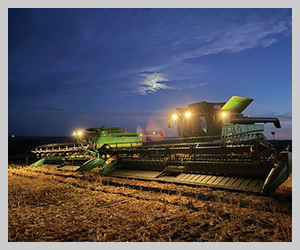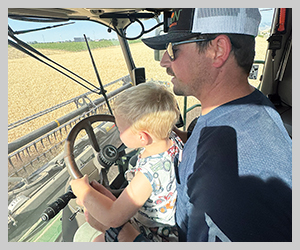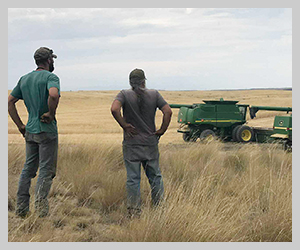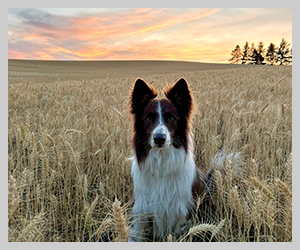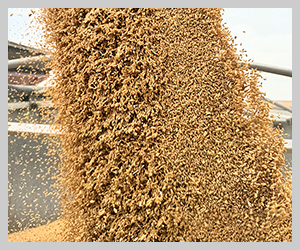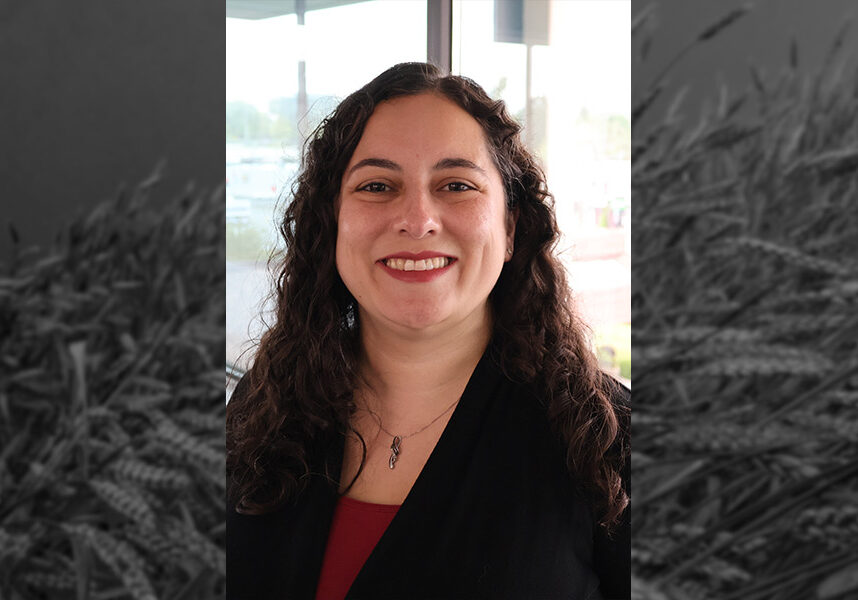
Looking back, everything in Tomy Gertsch’s employment history seems like it was in preparation for her current job as a senior risk management specialist at the U.S. Department of Agriculture (USDA) Risk Management Agency’s (RMA) Spokane Regional Office.
Gertsch grew up in Hermiston, Ore. While her family’s main occupation wasn’t farming, she was active in 4-H, and most of her summer jobs were ag related. Her family also raised a small herd of Polled Herefords. Gertsch attended Gonzaga University, first majoring in education before realizing that profession wasn’t the right fit. She eventually graduated with a degree in history and minors in general business and economics.
“I went back home to save some money after school. The jobs that were around were in agriculture,” she said. “I was a lab tech in an agricultural testing laboratory and then spent a few years as an admin assistant for a commercial loan center for a local bank. Then I came up to the Spokane region when I became an accounting assistant for a grass seed company. In 2016, I got a job with the USDA Farm Service Agency (FSA) and began a year of training to become a county executive director.”
During her first year at the FSA, Gertsch traveled around the state learning all the different programs FSA offered; at the end of that year-long training, she became the county executive director in Klickitat County, based in Goldendale. Klickitat County showcases the extremes of Washington state: one side is lush and green where it straddles the Cascade Mountains, while the eastern side is much drier. With the diverse environment, agriculture in the county includes wheat and other small grain operations, hay operations, and cattle ranches, as well as several wineries.
“It was a great starting county to get a little bit of everything that Washington state can offer. It was a great office to learn at,” she said. After a few years, Gertsch became the agricultural program specialist for the state and moved to the state FSA office in Spokane. There, she oversaw the Noninsured Crop Disaster Assistance Program, or NAP, as well as some of FSA’s commodity loan programs, dairy programs, and several of the ad hoc programs, such as the Coronavirus Food Assistance Program and the Market Facilitation Program.
“There was a lot of different programs that I covered in those years, but my favorite was NAP. NAP was more diverse than some of the other programs because you dealt with a lot of unique crops throughout the state of Washington,” she said.
NAP also shares some similarities with crop insurance, so when a position opened up at RMA’s Spokane Regional Office, Gertsch decided to apply. In 2022, she became the risk management specialist for dry peas, grass seed, alfalfa seed, hybrid specialty seed, and hybrid vegetable seed. In January of this year, she was promoted to senior risk management specialist. In her new role, she covers more of the perennial crops, including apples and grapes, as well as some seed crops.
The move from FSA to RMA wasn’t the only change Gertsch had to adapt to when she switched agencies. In general, RMA tends to have less interaction with individual growers; instead, the agency works primarily with grower groups or approved insurance providers, making sure policies are upheld and are fitting the needs of the industry. RMA is also much smaller than FSA — employees working out of the Spokane Regional Office cover Alaska, Idaho, Oregon, and Washington.
One of the perks of Gertsch’s RMA position is that it is never boring. She said agriculture is always changing, and there’s always something new to learn. When new crops are introduced or a new processor moves into the region, RMA can usually find a program from another part of the country that can be reworked for the Pacific Northwest. The agency also works with private companies to develop insurance products that are eventually implemented through RMA. One example happened in the dry pea industry. Originally, plans for dry peas mainly protected yield.
“(Growers) wanted a product that was more revenue based, and so they worked with a private developer to create some sort of revenue protection. Over time, for Washington and Idaho, we have been able to provide multiple plans for them. So those growers now have three different plan options: they can do yield protection, revenue protection by itself, or revenue protection with harvest price exclusion,” she explained.
While crop insurance may be a cornerstone of wheat growers’ safety net, it isn’t as well utilized in the state’s specialty crops, although Gertsch said that is changing. Grass seed growers, who have been eligible for crop insurance for years, are beginning to request written agreements.
“In the last few years, our office has worked to expand coverage for Kentucky bluegrass in Idaho, Washington, Oregon. I think we’re also making strides for perennial ryegrass as well,” she said. “Like a lot of our seed crops, we hear from the grower groups, and that’s what triggers us to see what modifications we can make in the policy, or what data we need to research to try to get a new policy that may be beneficial to growers.”
In her spare time, Gertsch likes to garden and read sci-fi and fantasy books. She also enjoys exploring eateries and breweries in Eastern Washington and Northern Idaho. Local Spokane establishments provide both great food and tasty beer in atmospheres that are welcoming and pleasing to her inner nerd. She is always happy to hear when brewers utilize local hops and malting barley. She’s proud to be part of an agency that is dedicated to keeping growers going when a crop fails and wants growers to know that RMA is always working to make crop insurance work better.
“If you bring up an issue to your grower group, it will make its way to us. And even if you don’t hear a response immediately, usually behind the scenes, we are working on how to make modifications,” she said. “We’re a small agency, but we cover a lot, and we do a lot.”





